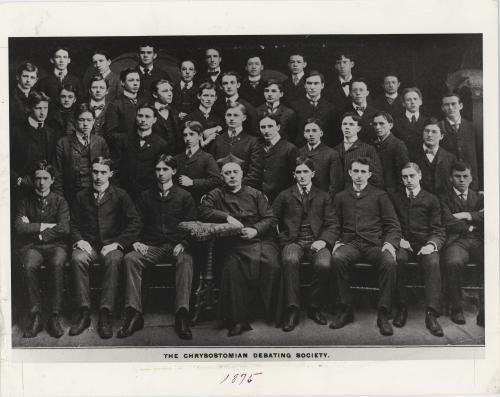Beyond the Classroom: Loyola’s Student Organizations
Then: Loyola’s First Student Organization, The Chrysostomian Debating Society
Established in 1875, the Chrysostomian Debating Society provided a platform for students to engage with the ideas they had been studying in the classroom.
The goal of the Society was “to accustom its members by means of literary discussion to speak with ease and fluency on useful and interesting subjects”.1 The Society hoped to "promote the cultivation of eloquence" and "acquisition of sound knowledge".2
Discussions were conducted in the St. Ignatius College library from 4-6 PM on Wednesdays and Fridays.3As the name suggests, the Society carried out their discussions mainly through the medium of debate. Preceding the debate of the evening, one member, chosen on a rotating basis, would set the tone by reading an original essay or poem about a particular author. The same member would also recite by heart an excerpt from a piece of that author’s work.
For debates, each side had two debaters and each was allotted five minutes to deliver from memory a pre-written argument in support of or against the topic at hand. The debate would last approximately twenty minutes. By the end of the debate, the executives of the Society would decide which side had delivered the best argument. If they could not decide, the floor was then opened up for the entire Society to decide the winner.4
The Society drew from a wide range of historical, literary, educational, and political subjects for their debates.5 Subjects ranged from classic debate topics such as the desirability of the democrat platform versus the republican platform and the abolishment of capital punishment to current issues such as the “Tampico Affair” in 1914.
Debate afforded its members not only an intimate knowledge of the headline issues of the world, but also proved to be a highly interesting and entertaining competition as well. Some principal members also competed in intercollegiate debating circles, traveling around the Midwest for public debates with other renowned debating societies. Among the principal public events held on Loyola’s campus were the Oratorical Contest and the prestigious John Nagten Debate, which often drew sizable and enthusiastic audiences.6
Now: Loyola’s Student Associations and Greek Life (SAGA)
Nowadays, students can find similar opportunities for personal growth through the student organizations that make up Loyola’s Student Associations and Greek Life (SAGA). With nearly 400 different student organizations, SAGA offers students specificity when it comes to their involvement outside the classroom. Each student organization is sorted into one of six different classifications: Service/Spiritual, Hobby/Special Interest, Political/Social Issues, Cultural/Ethnic, Academic/Honorary, and Media.7 Through participation in co-curricular activities, students are able to explore their passions, sharpen their leadership skills, and become leaders of change in their communities.
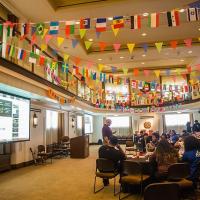
Cultural & Diversity Expression Fest
Photo Details >>
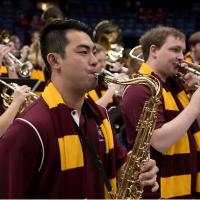
Loyola University Chicago Band
Photo Details >>
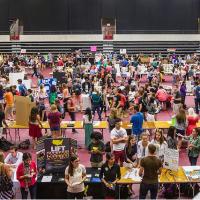
Student Organizations Fair
Photo Details >>
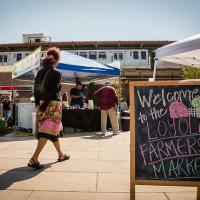
Loyola Farmers Market
Photo Details >>
« Champions and a Cinderella: The 1963 and 2018 Men's Basketball Teams
